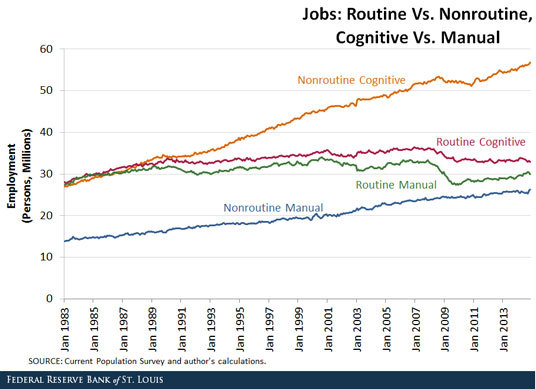We Need More Women Starting Companies, by Andrew Yang, Venture for America
Adam Rifkin stashed this in Women
Source: http://businessinsider.com/we-need-m...
Found via Rachel Sheinbein:
https://twitter.com/RachelSheinbein/status/575074986370592768
Stashed in: Founders, 106 Miles, Business Facts, Sara Blakely, inequality, startup, Theranos, Women!
Here is the astounding stat:
If a woman is successful in getting investment, she’s likely to be successful. Women-led private technology companies achieve 35% higher return on investment than male-led tech companies.
Two examples of very successful women founders are Sara Blakely and Elizabeth Holmes.
Elizabeth Holmes founded Theranos, a blood diagnostics business, eleven years ago when she was only 19 years old.
Theranos developed technology that enables blood tests with only a drop of blood, eliminating pain, discomfort and costs.
Theranos today is valued at $9 billion, and Holmes, now 30 years old, is a multi-billionaire.
Sara Blakely had the idea for hosiery that was slimming and firming while she was selling faxes door-to-door.
She started Spanx with $5,000 16 years ago — she was originally turned down by every hosiery manufacturing mill before one operator, who had 2 daughters, agreed to work with her.
Today, Spanx is a billion dollar company and Blakely is another self-made billionaire.
There are a number of structural impediments for women starting bigger companies.
1. Women start with less money.
As one female investor put it, “if you make 77 cents on the dollar and you compound that over a lifetime, you end up with women having a lot less free cash flow.”
The first money into a business is typically your own. Women make approximately 23% less than men in terms of salary, which gives them less risk capital to start a big business.
2. Investors are generally dudes.
The proportion of angel investors who are women is higher than it’s ever been, at about 20%. This is up from only 5% in 2004. But 1 out of 5 is still pretty bad.
It gets much worse in the venture capital context, where only about 4% of partners, who typically make investment decisions, are women.
Most male investors don’t consciously exclude women; they just want to make money. But venture-backed women-led companies bring in 12 percent more revenue than male-led companies — and yet only 3% of venture capital between 2011 and 2013 went to companies with a female CEO.
This suggests that there’s some bias at work — that women have to be better than their male counterparts to get venture backing.
3. Women have fewer role models.
There are fewer female entrepreneurs and CEOs to look up to as role models and mentors. For example, only 5% of Fortune 1000 CEOs are women.
If you try to engage a male mentor, the odds of him going creepy on you are non-zero. The images of entrepreneurs still tend to be brash, male, iconoclasts.
I’ve met hundreds of young women who have the makings of an entrepreneur but are still hesitant to see themselves in that light, in part because they don’t have as many role models that they see themselves in.
4. Women sometimes have children (and stay home to nurture them).
I became a parent a couple of years ago so I’m sensitive to this. Thank god that some women want kids or else none of us would exist! But mothers face a choice that most fathers don’t.
Women sometimes take a step back from work for a few years to take care of children — the labor force participation rate for women with infants drops to 57% before rising back to 75% for women with children 6 years or older. Women are the primary caregivers to children in 70% of married households as well.
In my experience, entrepreneurship tends to be kind of cumulative, like a layer cake. Taking some time away can make it hard to rev up. Women face this challenge more often than men.
5. Women can be more conservative.
I spoke to a woman entrepreneur who’s married to another entrepreneur.
She related how tough it was to get her women friends to invest in her new company, contrasting it with her husband whose friends had been lending each other money or investing for years. Studies have shown evidence that women are more risk-averse (and, on a related note, better performing) investors than men.
Men are often kind of slobs. We’re like, “Eh, we’ll figure it out.” Women, perhaps less so.











6:02 PM Mar 23 2015